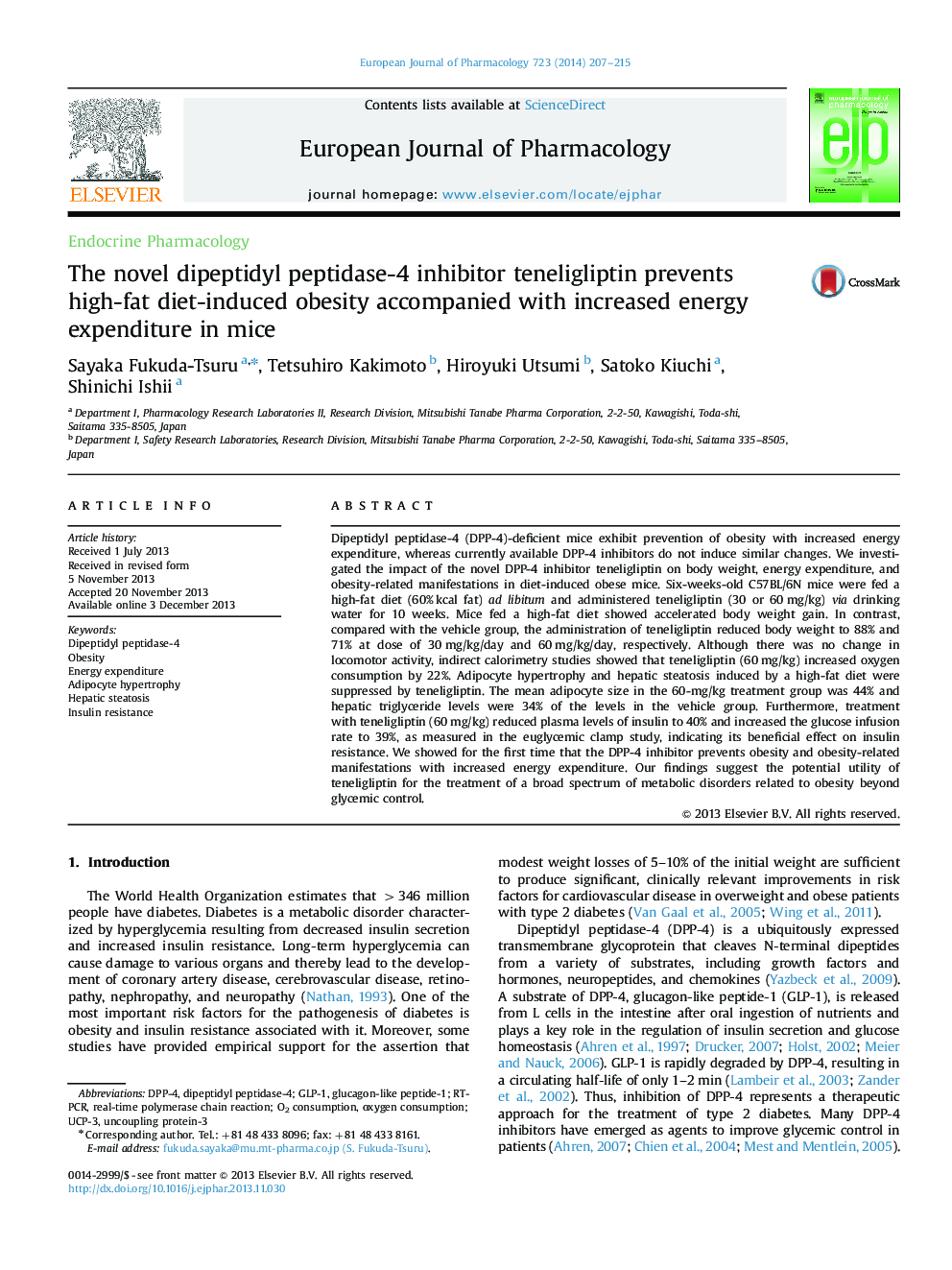| Article ID | Journal | Published Year | Pages | File Type |
|---|---|---|---|---|
| 2532035 | European Journal of Pharmacology | 2014 | 9 Pages |
Dipeptidyl peptidase-4 (DPP-4)-deficient mice exhibit prevention of obesity with increased energy expenditure, whereas currently available DPP-4 inhibitors do not induce similar changes. We investigated the impact of the novel DPP-4 inhibitor teneligliptin on body weight, energy expenditure, and obesity-related manifestations in diet-induced obese mice. Six-weeks-old C57BL/6N mice were fed a high-fat diet (60% kcal fat) ad libitum and administered teneligliptin (30 or 60 mg/kg) via drinking water for 10 weeks. Mice fed a high-fat diet showed accelerated body weight gain. In contrast, compared with the vehicle group, the administration of teneligliptin reduced body weight to 88% and 71% at dose of 30 mg/kg/day and 60 mg/kg/day, respectively. Although there was no change in locomotor activity, indirect calorimetry studies showed that teneligliptin (60 mg/kg) increased oxygen consumption by 22%. Adipocyte hypertrophy and hepatic steatosis induced by a high-fat diet were suppressed by teneligliptin. The mean adipocyte size in the 60-mg/kg treatment group was 44% and hepatic triglyceride levels were 34% of the levels in the vehicle group. Furthermore, treatment with teneligliptin (60 mg/kg) reduced plasma levels of insulin to 40% and increased the glucose infusion rate to 39%, as measured in the euglycemic clamp study, indicating its beneficial effect on insulin resistance. We showed for the first time that the DPP-4 inhibitor prevents obesity and obesity-related manifestations with increased energy expenditure. Our findings suggest the potential utility of teneligliptin for the treatment of a broad spectrum of metabolic disorders related to obesity beyond glycemic control.
